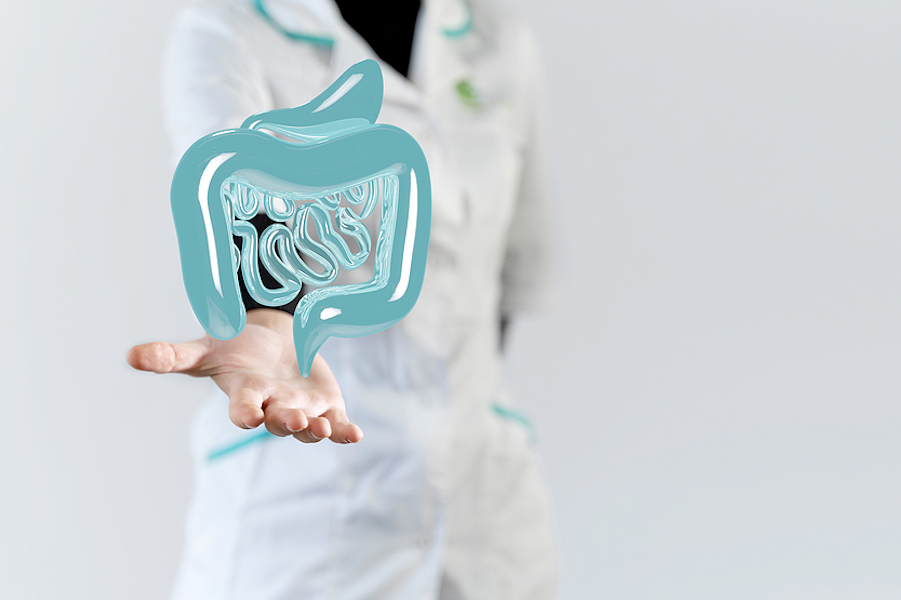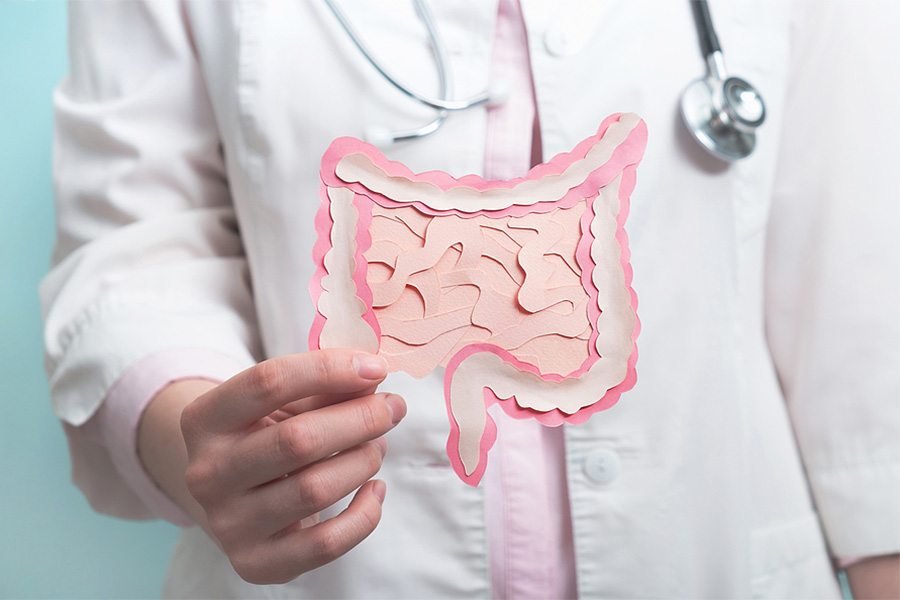Updated 5/21/2020
It’s so common in my practice to see women presenting with new physical complaints after major life events, such as a big job change, having a baby, or getting divorced. And in recent months, since the COVID-19 pandemic began changing life as we know it in big ways, I’ve seen this happening more than ever.
Women who have been doing well and feeling great for months are suddenly calling, desperate for help. They haven’t changed a thing about how they’ve been eating, but symptoms that have been kept under control for years have suddenly resurfaced. What’s going on here?
I’ve been able to help them out by looking beyond old diagnoses to see if there’s more to the problem than they thought. Let’s look at one example.
Diana called last month for a consultation. She told me she’d been diagnosed as a child with lactose intolerance, and since then had been able to keep symptoms at bay, even through two pregnancies. She thought she wouldn’t need to worry about her condition again, as long as she minimized her dairy consumption and paid attention to what she was eating.
Then the pandemic hit, and suddenly her stress level was through the roof. Working, trying to manage home learning for two young children, and fear about the virus all added up to major stress – and major symptoms! Every time she ate – no matter what it was – she had uncomfortable gastrointestinal symptoms: gas, bloating, even diarrhea.
These symptoms, combined with the stress, left her exhausted, irritable and barely able to function. It was impacting every aspect of daily life, and the close quarters of staying at home with her family made her challenges more intense – there just wasn’t anywhere to escape to for stress relief.
As I listened to Diana, it seemed obvious that there was more going on than lactose intolerance. After all, she still mostly avoided dairy products, but her symptoms were worse than ever.
What did I think was going on? Leaky gut syndrome. You may not have heard of this diagnosis much. It’s not at the top of many conventional practitioner’s list. But it’s more common than you might think.
The complexities of the digestive system
Our digestive system isn’t just about breaking down food. Not only does the digestive system control digestion and protect us from hostile bacteria, but it also communicates with the brain. That’s right – your gut sends physical signals such as gas or hunger, and emotional feelings such as anxiety, stress, and even love. This complex union moving through the gut is often referred to as our body’s second brain, and it impacts our health both physically and psychologically.
The gut is not a “thinking” brain, but our digestive tract actually has its own reflexes and senses, working hard to move things through our body, absorbing nutrients, and removing waste. Because of this complicated system of nerves and chemicals, sometimes these exchanges of information can veer off track.
The signs that our gastrointestinal tract is off are clear, and we usually notice them quickly. Changes in digestion can impact our daily lives with embarrassing, even debilitating, symptoms that include gas and bloating, cramps and diarrhea. Other symptoms that may not be as easily recognized as being connected to the digestive system include, fatigue, joint pain, and skin rashes.
Even when we do recognize the symptoms, we often don’t figure out how to fix the problem long term. Instead we reach for antacids or other medication to block the symptoms.
But when we recognize these symptoms for what they are (leaky gut syndrome), we can get to the root of the issue once and for all. Complaints relating to a digestive imbalance comes up with more than half of my clients – that’s how widespread the problem is. And many times, upon further exploration, their discomfort is due to leaky gut syndrome.
What is leaky gut?
Leaky gut is a condition affecting the lining of the intestines, creating a dysfunctional environment for proper digestion. It is also called “increased intestinal permeability,” because with leaky gut, the intestines lose some of their ability to filter nutrients and other substances. When this happens, particles of incompletely digested foods, bacteria, other waste by-products may leak through the intestines into the bloodstream. Leaky gut is usually caused by some form of damage to the intestinal lining.
Our intestines are lined with cells, which are sealed together by something called “tight junctions.” In healthy intestines, these junctions work like gatekeepers, which essentially allow or prohibit particles to move through the gut and into the circulatory system. With leaky gut syndrome, particles can slip through the cells and tight junctions and literally leak into bloodstream or lymphatic system, then move freely throughout the body.
The body recognizes these foreign substances and goes on high alert. It knows that something is wrong, and that’s when the immune system kicks in, trying to fight against what it perceives to be danger in the intestines. This causes inflammation and inhibits functioning. When this happens, a woman’s ability to digest food and absorb nutrients is decreased, and her immune system can become compromised. Impaired immune functioning is a big problem, because our guts contain tissue known as gut-associated lymphatic tissue (GALT) which helps protect us from antigens causing food allergies as well as microbes carrying disease.
When the body is continually trying to combat the effects of leaky gut, it can be caught in a never-ending cycle. This is especially true when the source of the problem is not diagnosed. For example, if unrecognized food allergies are creating leaky gut, and the same foods are consumed over and over, a self- perpetuating, inflammatory cycle will be triggered, and the intestinal lining cannot heal.
Chronic inflammation in the intestines is a concern, because of its potential link to many serious disorders ranging from depression, osteoporosis, lupus, and multiple sclerosis to Alzheimer’s, heart failure, and more. Leaky gut may be also be linked to other gastrointestinal problems such as irritable bowel disease, Crohn’s disease or celiac disease, as well as immune system disorders such rheumatoid arthritis, and even asthma. That’s why I stress to my patients the importance of sharing all of their symptoms and concerns, no matter how small they may seem. As we examine each of the symptoms, we can figure out what may be causing them, and how to relieve them.
How Do You Get Leaky Gut?
There is no simple explanation for how leaky gut develops because there are so many factors that can create digestive problems. Sometimes, they originate early in our lives–such as with lactose intolerance or food sensitivities. The problems may ebb and flow, especially during busy or stressful times. Other times we can develop issues related to taking certain medications or medical treatments that may have caused damage in our gut. Things like radiation, chemotherapy, corticosteroids, and even long-term use of aspirin and antibiotics can wreak havoc with our intestinal flora, or the “good bacteria” that keep our digestive system functioning properly.
Any abundance of toxins in the system can burden our bodies. It is important to recognize imbalances and try to repair them naturally before they lead to other disease and disorders.
How can I fix it?
Functional medicine is all about examining the underlying causes of a disorder and addressing it with a patient-centered focus. Functional medicine practitioners take the time needed to evaluate lifestyle factors, environment, genetics, and history, and address individual aspects with a systems-oriented approach. The Institute of Functional Medicine developed a tool for clinicians to use when treating digestive disorders, called the Five “R” Program: remove, replace, reinoculate, repair and rebalance. All of these are crucial steps for recovery. Let me walk you through these five “Rs” to highlight effective ways to heal digestive imbalances.
- Remove: start with an elimination diet
The first step to healing is to stabilize and smooth the digestive tract. You can’t do that if you continue to eat things that you have unknown sensitivities to. A 14-day detox cleanse is a gentle approach that helps eliminate common allergens, such as dairy, soy, gluten, sugar, yeast, and alcohol. It can help determine which foods may be contributing to symptoms. I work in partnership with my patients to help them manage and maintain an effective cleanse.
- Replace: investigate digestive aids
Oftentimes, using soothing digestive herbs, digestive enzymes, or other digestive supports, can help protect the lining from further damage, and coat the intestines while they heal. Every patient is different, so there’s no “one size fits all approach to deciding which digestive supports are appropriate. A functional medicine clinician can help determine which supports are best for each patient’s unique needs.
- Reinoculate: rebalance your gut flora
Friendly bacteria are important, and a well-colonized gut is vital to good digestive health. The good bacteria help abate the less-friendly ones that lead to sickness and disease. Probiotics are an important way to re-introduce proper flora to the intestines. Proper diet, including fiber-rich foods also establish microfloral balance. You might also need a prebiotic to help keep those beneficial bacteria well fed and thriving.
- Repair: rebuild your intestinal cells
There are many ways to repair and rebuild the intestinal cells and lining. Medical research continues to explore ways to advance this healing naturally. Studies have shown glutamine is helpful for maintaining the structure and function of the intestine and has been shown to improve damage from radiation and chemotherapy. Other therapies include methionine and N- acetyl cysteine, larch, kiwifruit, and zinc to aid in healing. It is important to work with a clinician to establish the best ways to treat and repair your digestive tract.
- Regulate or Rebalance
This is the step many may miss – but it’s essential for long-term success! We must pay attention to how we feel when we eat, where and how we eat, and of course what we eat – all the time, not just when we’re having trouble. That means avoiding any food that you’ve determined causes GI upset in your body. It’s also important to eat in a relaxed setting, eat slowly, and chew food thoroughly to help our bodies digest food properly. Digestion begins with an antibody in our saliva called secretory IgA (sIgA), which is an indicator of digestive immune function. Found throughout the digestive tract, sIgA is our first line of defense against bacteria and, along with relaxed, healthy eating, is important to our entire immune system.
With my guidance, Diana is well on her way to healing her leaky gut. But full healing takes time, patience and a willingness to commit to the steps I’ve recommended for the long haul. She says that she’s found so much relief in just a few weeks, she’s ready to make these changes permanent. She’s beginning to enjoy eating again, her irritability has begun to subside, and she trusts that she can take a long walk away from easy access to a bathroom!
There’s a lot still to be learned about leaky gut syndrome, but I know one thing for sure: it is real. Symptoms may look different for everyone, but identifying and isolating the root cause can help eliminate this distressing disorder. I firmly believe that digestion is the foundation of our overall health. By nurturing and improving this very important function naturally, we can open the door to better health for life!








